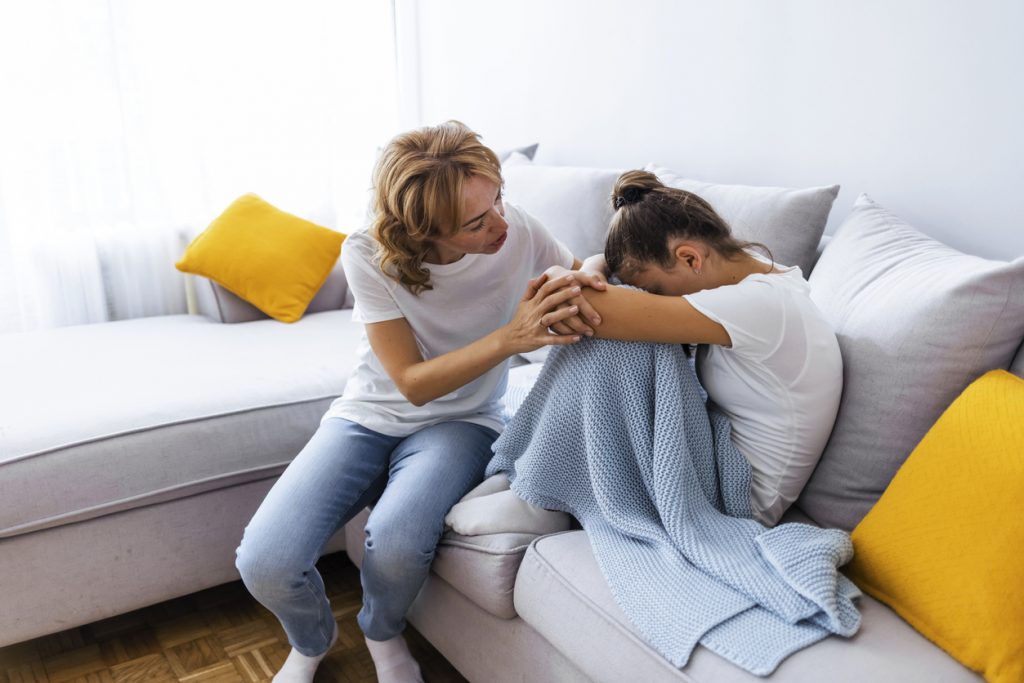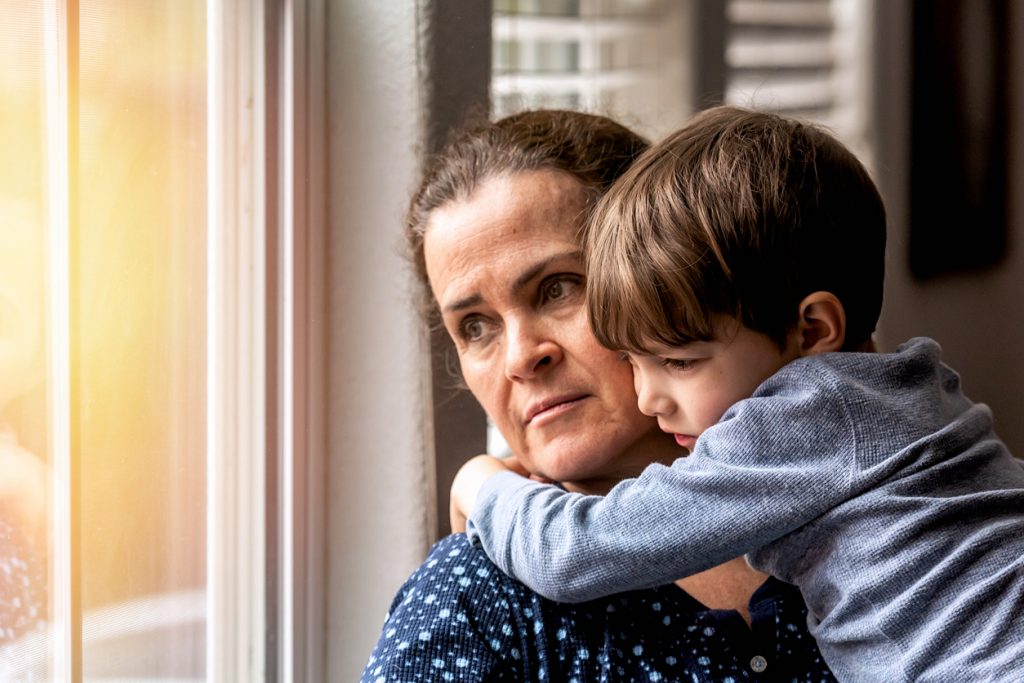Will my kids have an anxiety disorder because I do?
Pounding heart, sweaty palms, shortness of breath and a feeling of dread: anyone who suffers with anxiety – in any of its forms – knows the complete physiological hold it can have over you. And while Anxiety often presents as a primarily emotional response with secondary physical factors, is there a chance there could be a genetic link buried underneath it all?

What causes anxiety?
Firstly, it’s important to remember that while anxiety is a normal emotion (and a normal reaction to stressful or extreme events in your life), excessive anxiety that is more extreme or long-lasting than the situation warrants, can be a sign you may have an anxiety disorder.
Common anxiety disorders include:
- Generalised anxiety disorder (GAD)
- Phobias
- Panic disorders
- Social anxiety
- Agoraphobia.
Research is yet to uncover what causes a person to develop these types of disorders, however we do know there are significant risk factors. You’re at a higher risk of developing an anxiety disorder if:
- You are a woman (women are almost twice as likely as men to develop an anxiety disorder)
- You have suffered traumatic experiences in life
- You have a physical condition that exacerbates anxiety, such as a thyroid or autoimmune condition.
Is anxiety genetic?
“Many factors contribute to the development of anxiety,” explains Dr Andrew Thompson, Medical Director at InstantScripts.
“There are both genetic and environmental pressures that can cause it to manifest. However, a family history of any mental health concern is considered a risk factor for a patient developing mental health problems.”
One study found that around 30 per cent of anxiety issues in kids can be traced back to inherited brain patterns, while research on identical twins also found a genetic component to some anxiety disorders. Because no single gene responsible for causing anxiety has been found, it’s difficult to pinpoint precisely how much our genes are at play, but it’s important to note that genes are only part of the story.
While genetics can give us some limited information about a person’s risk for developing an anxiety disorder, the larger part of the puzzle appears to be environmental. Adverse childhood experiences, hormonal imbalances and temperament all play a part as well.

Will my kids have an anxiety disorder because I do?
If you have a diagnosed anxiety disorder, one of the things you may worry about is the potential for passing it down to your children. While it’s true that the children of a parent with an anxiety disorder are at an increased risk of developing one, it is by no means the only risk factor. If your children do show signs of mental health issues, the best way to support them is to provide a safe, secure environment in which they can thrive, regardless of the role their genetics may play.
Ensuring your own mental health is well-taken care of is one of the best ways you can support resilience in your children.
“If you are concerned about the impact your mental health may be having on your child it is important to talk to your doctor,” says Dr Thompson.
“Parenthood is an inherently stressful time and this can cause fluctuations in our otherwise stable mental health. It is important not to blame yourself if you’re feeling an increase in your symptoms but rather seek help by talking to your friends or family about your struggle and seeing your doctor for a checkup.”
Here are 10 simple strategies for reducing anxiety and depression. If you would like to speak to one of our Australian-registered doctors, we are available 6am-12pm every day.
To speak with an InstantScripts Doctor:
Request a ConsultationIf you have run out of your script:
Request a ScriptThis article is written by Bek Day, a writer and journalist with over 15 years’ experience in the health and lifestyle space.
© InstantScripts
Level 8 / 637 Flinders St.,
Docklands VIC 3008

